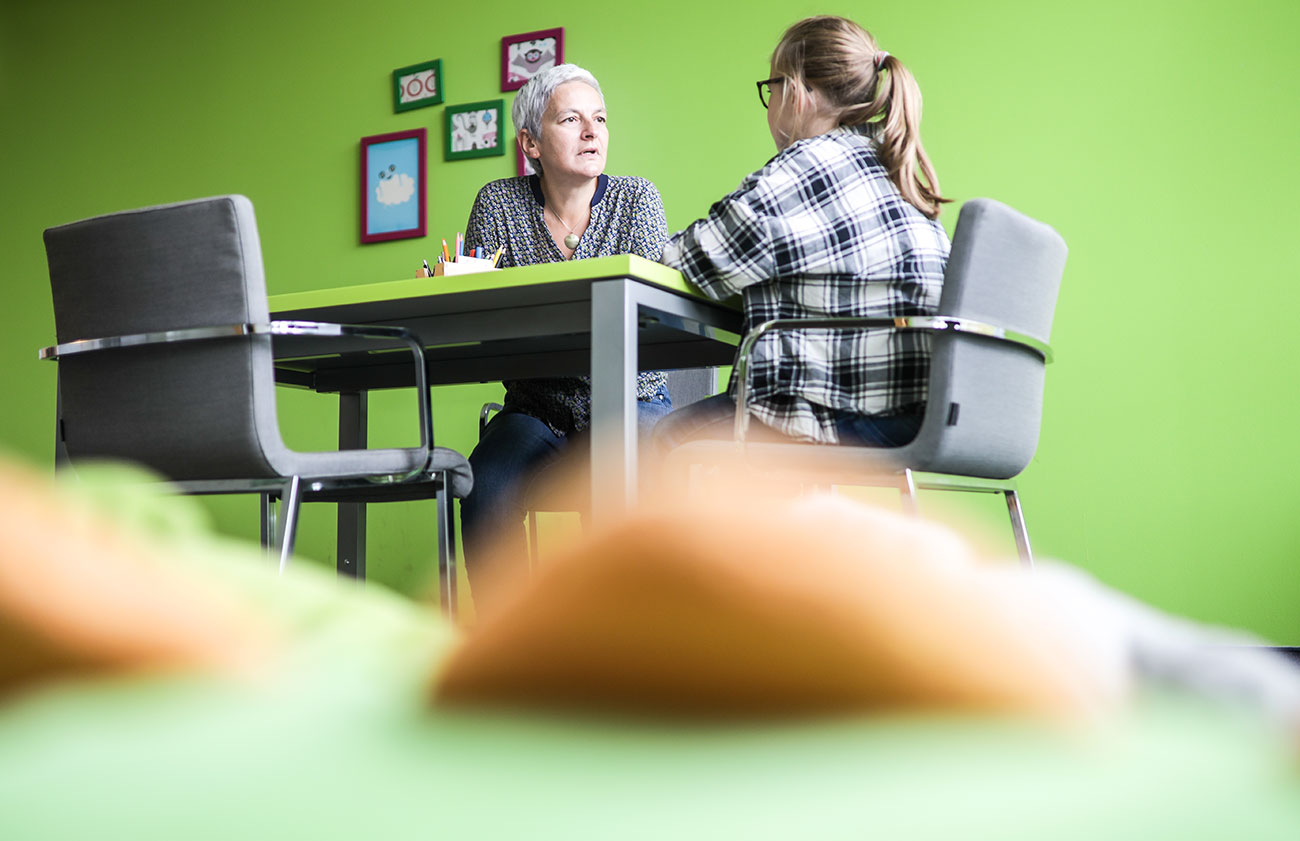
Intervention research
One of our central concerns is to develop and evaluate evidence-based recommendations for clinical-psychological interventions for children, adolescents and their families in the field of mental health, and to bring them into care. We do not limit ourselves to psychotherapy research, but cover the spectrum from prevention and treatment to (underexposed) implementation research. In line with the stepped care approach, we investigate the effects of brief (micro) interventions, specialised consultations, booster sessions and population-based complex interventions in communities, in addition to traditional psychotherapy. The involvement of children's and adolescents' living environments (family, nursery and school) and the development of digital health applications and health apps to promote mental health are also part of our research.
Head of the research group
Differential Impact of Parental Participation on Intensified Exposure Based Psychological Interventions in Anxiety Disorders in Children.
Principal Investigator and Team
Prof. Dr. Silvia Schneider
Prof. Dr. Jürgen Margraf
Dr. Dirk Adolph
Michael Lippert, M.Sc.
Dr. Verena Pflug
Dipl. Stat. Dr. Xiao Chi Zhang
Collaborator
Technische Universität Dresden, Prof. Hans-Ulrich Wittchen
Albert-Ludwigs-Universität Freiburg
Prof. Brunna Tuschen-Caffier Universität Koblenz-Landau
Prof. Tina In-Albon Philipps-Universität Marburg
Prof. Hanna Christiansen Universitätsklinikum Würzburg
Prof. Marcel Romanos
Preregistration
German Clinical Trials Register: DRKS00009709.
Registered 4.12.2015
Funding
Federal Ministry of Education and Research (BMBF) (FKZ:01EE14202C)
Duration
Since April 2015
Description
The goal of the present trial is to improve our understanding of a disorder-specific use of parental participation in psychological treatment of childhood anxiety disorders. In sharp contrast to adult anxiety disorders, childhood anxiety disorders are under-researched in spite of their high prevalence, strong continuity into adulthood and powerful prediction of adult disorders. However, effective treatments share exposure interventions and thus extinction learning as a core ingredient. Basic research indicates that suboptimal conditions for extinction learning and context conditioning with the parents as powerful context variable could explain poorer extinction learning and higher return of fear in children. Thus, we will administer high doses of extinction trials with vs. without parental participation to examine the disorder-specific efficacy of parental participation. We expect that for separation anxiety disorder, but not for specific phobia and social anxiety disorder, parent inclusion decreases return of fear and yields more lasting treatment effects via optimizing extinction learning. To test the hypothesis, we conduct a multicenter randomized clinical trial with 400 children aged 8 to 16 years with a primary diagnosis of separation anxiety, specific phobia or generalized anxiety disorder. The treatment consists of 16 sessions á 60 min. (5 sessions over 4 weeks for psychoeducation + rationale, 5 double sessions of IPI over 3 weeks, 1 session for relapse prevention). While half of the children will attend treatment with their parents the other half will attend without parents, but will receive the same treatment ingredients. Before and after treatment, children will be studied in the psychophysiological lab to investigate extinction learning, contextual fear and extinction deficits. Blood samples are collected to study DNA methylation in the pathogenesis, as predictors of therapy response and as potential correlates of extinction elements in psychotherapy of anxiety disorders. The present study has the goal to generate evidence-based recommendations for clinical guidelines. The proposed study will disseminate effective treatments and build new centers for the treatment of childhood anxiety disorders and thus improve psychotherapy services in Germany for the most common mental disorders in childhood.
Principal Investigator and Team
Prof. Dr. Silvia Schneider
Dr. Lukka Popp
Dr. Kathrin Schopf
Dr. Babett Voigt
Elisa Schallau, M.Sc.
Funding
Brost-Stiftung
Duration
January 2025 – December 2026
Description
Children and adolescents spend a large part of their day at school. Teachers often notice their students' mental problems at an early stage, which can manifest in emotional and behavioral problems.
The aim of the project is to develop a new digital platform, which can support teachers in acting quickly and correctly to improve and promote the mental health of students and increase their own mental well-being as well.
The digital platform will impart knowledge about mental health and illness, as well as knowledge about how to develop positive behaviors an interactions towards young people. By getting to know short, targeted interventions, the overall action competence of teachers is to be strengthened.
In this project, we will use the findings and intervention offers from the prevention project "Urban Mental Health", which has already been developed and tested for two years at schools in the Wattenscheid district of Bochum. We will prepare the content methodically and creatively for the digital platform in such a way that it can offer quick and targeted support in everyday school life. To ensure long-term sustainability, the digital platform will be made available to other schools in the Ruhrgebiet area and beyond after successful evaluation after the project period.
